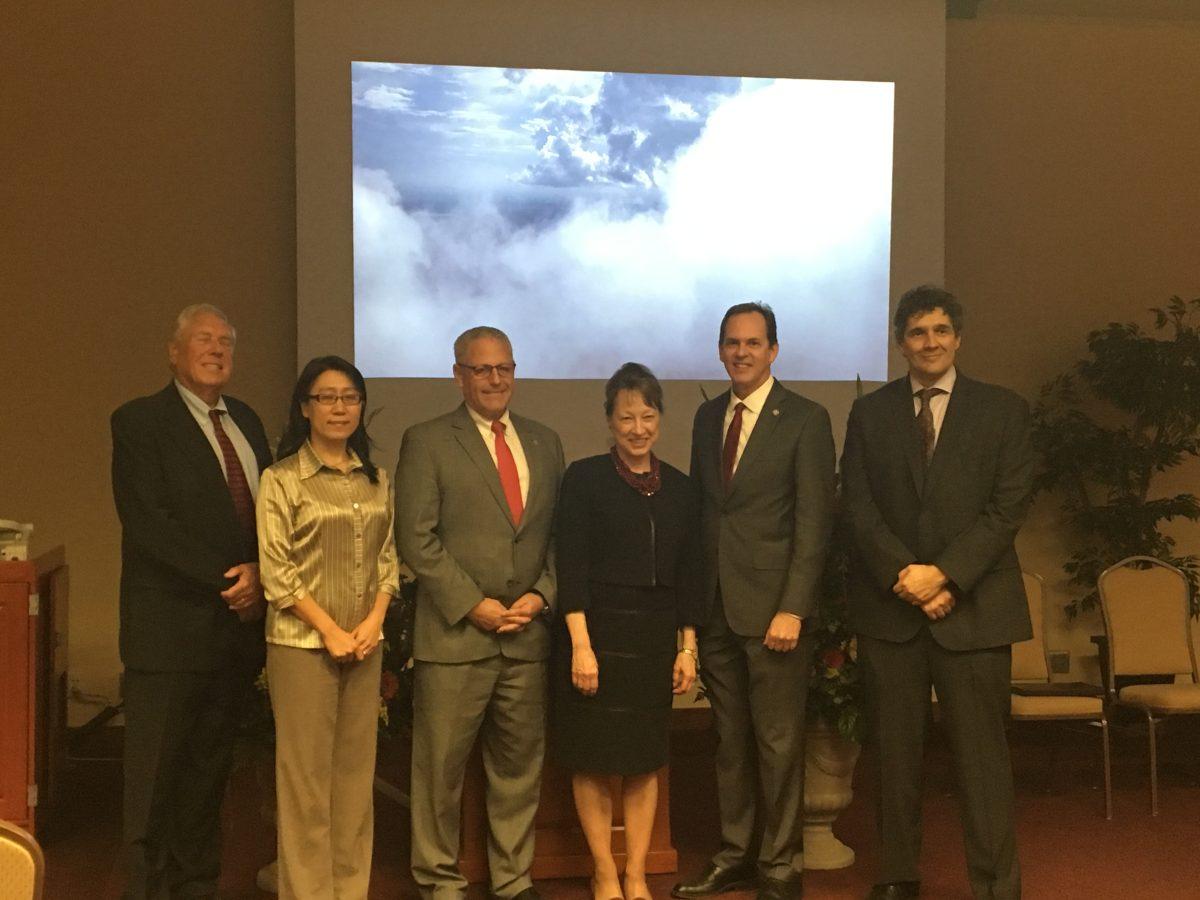The Gilbert M. Grosvenor Center for Geographic Education alongside the Department of Geography sponsored the 18th Annual Grosvenor Distinguished Lecture on Nov. 29. This year’s keynote speaker was Gary E. Knell, the president and CEO of the National Geographic Society.
The topic addressed during the lecture, “Generation Geographic,” focused on the importance of human and physical geography as well as how humans interact with the environment and with each other. The presentation began with a definition of geography as the representation of the many different dimensions and facets that a single state, region, country or continent can contain. However, Knell sees geography as more than just the physical aspect of our world; it is also the humane aspect of it.
“(Geography is also) the men and women and children around the world who are suffering because of where they were born, what circumstances they were born into, the danger and violence inflicted by other people on them,” Knell said after sharing the story of a young refugee boy stuck in Siberia after fleeing Afghanistan.
To Knell, geography is a manner for people to connect while raising consciousness, regardless of distance. The fates of the people suffering across the globe depends on whether the rest of the world is aware and understands the play of those in need and for Knell, empathy is the key towards aiding those in need. Geography allows for the analysis of the past while anticipating the future.
As the world grows more complex everyday with issues like overpopulation and global warming, geography has never been so important. The National Geographic Society has made its goal to help the young people become more socially conscious, and to inform change-makers who are working and striving to create a planet in balance. With an audience of over 760 million people and a magazine translated in 33 languages, the National Geographic Society is committed to increase their investment in education.
“Our new strategy is to empower educators with resources to enhance geographic education and teach students how to be critical thinkers, engaged citizens, and responsible stewards of the planet,” Knell said . “We are so excited for the future and what it holds for our program but especially what it holds for geographic education.”
The lecture concluded with Richard G. Boehm, director for the Grosvenor Center for Geographic Education, presenting Knell with the Grosvenor Medal which is offered to each year’s distinguished lecturer. The society was also recently given the Hero status by the university, a status given to organizations who have donated one million dollars or more to the school.
During its 130 years of existence, the National Geographic Society has made it its goal to support scientists and explorers who continuously push the boundaries of knowledge. As the technological world continues to evolves, the society is determined to aid educators with the necessary tools to educate people and to contribute to those who are working to solve today’s greatest problems.
Knell ended his presentation with a call to action, by quoting Max Lucado, “No one can do everything but everyone can do something.”
National Geographic president pushes for a “generation geography”
December 5, 2017
President Denise Trauth stands alongside administrative officials.
Photo by Sandra Sadek |
News Reporter
Donate to The University Star
Your donation will support the student journalists of Texas State University. Your contribution will allow us to purchase equipment and cover our annual website hosting costs.



















